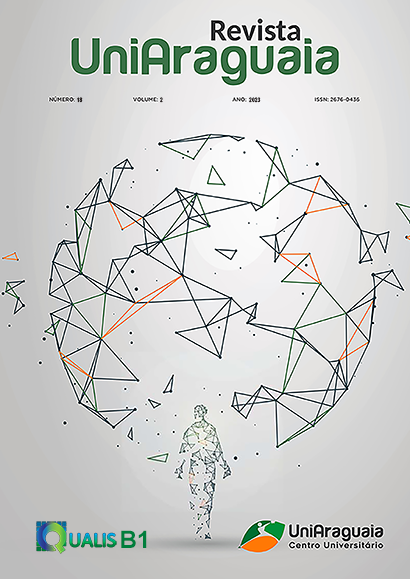GERENCIAMENTO DE RESÍDUOS DA CONSTRUÇÃO CIVIL EM DUAS OBRAS VERTICAIS NA CIDADE DE GOIÂNIA/GO
Abstract
A Indústria da Construção Civil (ICC) apresenta benefícios para a economia por meio da geração de riqueza e empregos. No entanto, ao mesmo tempo, causa sérios impactos ambientais, econômicos e sociais, uma vez que produz grande quantidade de resíduos que, na maioria das vezes, são depositados em locais inapropriados. Diante deste cenário, é necessário que seja realizado um bom gerenciamento desses resíduos nos canteiros de obra, visando um melhor gerenciamento, separação, reaproveitamento e destinação adequada desses materiais. Para o desenvolvimento deste estudo, foram realizadas visitas in loco em duas obras verticais localizadas na região metropolitana de Goiânia/GO, com o objetivo de apresentar informações, de maneira qualitativa, a respeito da gestão dos resíduos gerados nos empreendimentos em questão. Foi possível perceber que as medidas adotadas em ambas as obras se mostram eficientes, já que os empreendimentos realizam a devida separação, reutilização e reciclagem de forma ambientalmente correta.
Downloads
Published
Issue
Section
License
The copyright of the published articles will be transferred to the Uniaaraguaia Magazine, allowing its subsequent reproduction as transcription and with due citation of source. In the event of acceptance and before the publication of the article, the plaintiff (s) shall write a statement formally transferring copyright to the magazine.
The author may also print and distribute copies of his article, provided that he mentions that the rights belong to the Uniaaraguaia Magazine.
Author rights include the right to reproduce in full or partly by any means, distribute this article, including figures and photographs.
By submitting originals to the Uniaaraguaia magazine, the author or authors express agreement with the following terms:
a) Authors maintain copyright and grant Uniaraguaia magazine the right of first publication, with the work simultaneously licensed under the Creative Commons Attribution license that allows the sharing of work with recognition of the authorship and initial publication in this magazine.
b) Authors are authorized to assume additional contracts separately, for non-expiration distribution of the work version published in this magazine (eg publish in institutional repository or as book chapter), with recognition of authorship and initial publication in this journal.
c) Authors are allowed and are encouraged to publish and distribute their work online (eg in institutional repositories or on their personal page) to any point before or during the editorial process, as this can generate productive changes as well as increase the impact and citation of published work.

